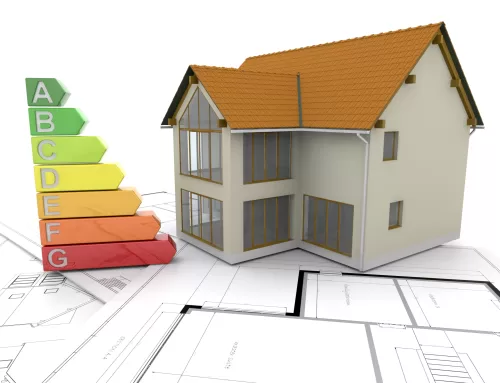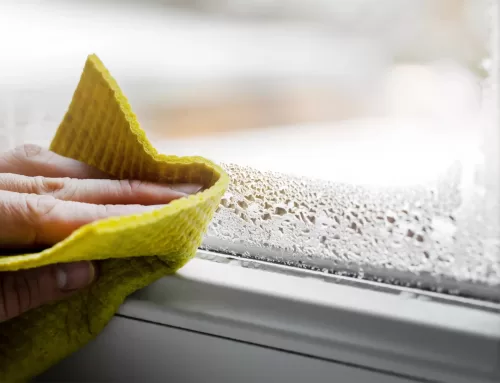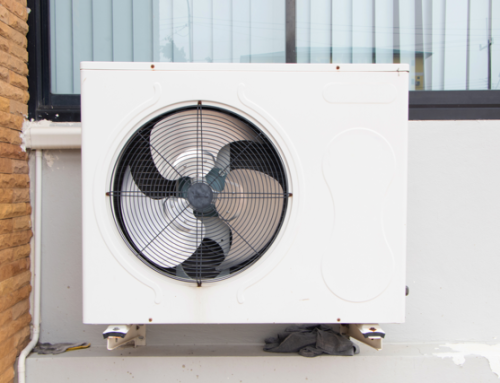Electric Panel Heaters and EPC Ratings
Introduction
If you’re a landlord, letting agent or homeowner, you’re probably familiar with the importance of an Energy Performance Certificate (EPC). EPC ratings are a critical component in the property market, particularly in the private rental sector. An EPC can help you and your tenants understanding the energy efficiency of a building. A lower EPC rating means higher energy consumption and, potentially, increased energy costs for you or your tenant. You may not be able to rent a property with an EPC rating lower than a Band E.
One of the factors that can negatively impact your EPC rating is the use of electric panel heaters. In this blog post, we’ll delve into why these heaters tend to receive poor EPC ratings and explore strategies to improve your property’s energy efficiency.
Understanding Electric Panel Heaters and EPC Ratings
Electric panel heaters are a popular choice for many properties, particularly in the private rental sector, due to their ease of installation, lack of maintenance and simplicity of use. It is important to note that despite their convenience, electric panel heaters possess certain inherent characteristics that render them much less favourable for an EPC rating when compared to alternative electric heating solutions.
Inefficient Energy Conversion:
Electric panel heaters work by directly converting one unit of electricity into one unit of heat. This process is notoriously inefficient, resulting in high energy consumption and costs.
No Heat Retention:
Electric panel heaters don’t retain heat. Once turned off, they rapidly lose their warmth , requiring more energy to maintain a comfortable temperature.
Carbon Emissions:
The high energy consumption of electric panel heaters contributes to increased carbon emissions, harming the environment and further lowering your EPC rating.
Expensive to Run:
With rising energy prices, electric panel heaters can significantly increase your utility bills, putting a dent in your finances.
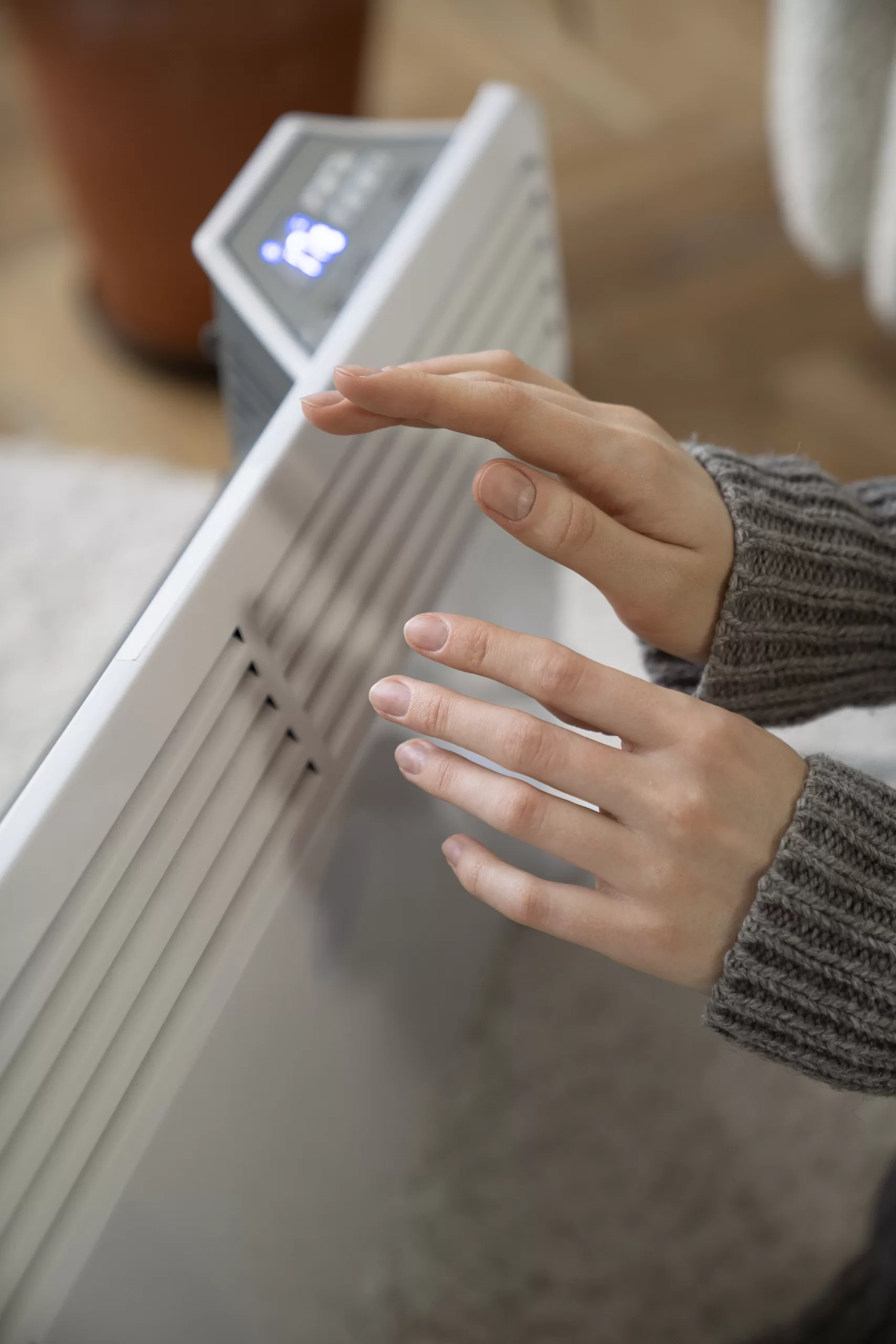
Improving Your EPC Rating
Now that we understand why electric panel heaters can give your property a poor EPC rating, let’s explore how you can improve your EPC rating.
EPC Rating Consultation:
Before you begin any refurbishments that include insulation or heating upgrades book a consultation with Bluewire Hub, your local domestic energy assessor. Our comprehensive consultation will provide you with unbiased, tailored advice based on improvements that will actually make your property more energy-efficient and subsequently improve your EPC rating.
Switch to Energy-Efficient Heaters:
Consider upgrading to more energy-efficient heating solutions, such as heat pumps or high heat retention storage heaters. These options are not only eco-friendly but can also substantially reduce your energy consumption.
Insulation is Key:
Enhance your property’s insulation to prevent heat loss. Proper insulation helps maintain a consistent temperature, reducing the need for constant heating.
Smart Heating Controls:
Invest in smart heating controls that allow you to customise heating schedules for different areas of your property. This will help you use energy more efficiently.
Renewable Energy Sources:
Consider incorporating renewable energy sources like solar panels to reduce your property’s reliance on conventional electricity.

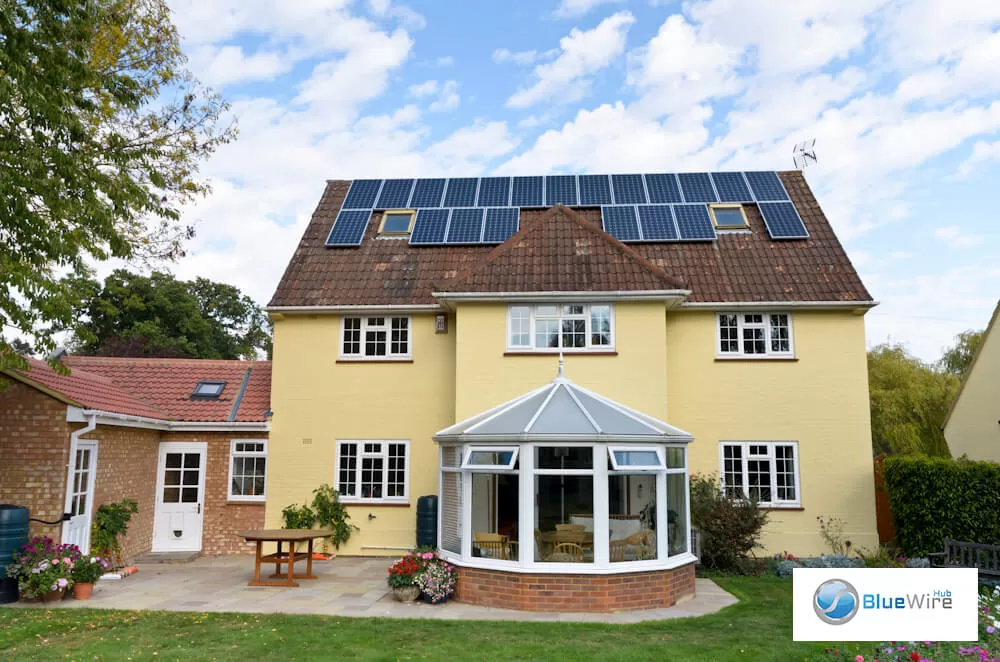
Conclusion
In conclusion, electric panel heaters are known to give poor EPC ratings due to their high energy consumption and inefficiency. However, if you ensure that you consult with your local domestic energy assessor at the beginning of your upgrade process, you can boost your property’s energy performance certificate rating and contribute to a greener, more sustainable future.
Remember, the team at Bluewire Hub Ltd are here to help you navigate the complexities of improving your EPC rating. Secure your comprehensive assessment and obtain an energy-saving solution tailored to your specific needs by using the link below.
Our Process
Book Your Assessment Now
Assess:
Our certified Energy Assessor will conduct a thorough assessment of your residential property, considering various factors that impact energy efficiency. You can read more about what this entails here.
Analyse:
We analyse the data collected during the assessment to generate accurate reports and recommendations.
Consult:
We provide a detailed consultation process to discuss our findings and recommendations with you, answering any questions you may have. Once you have completed any works we will provide a new Energy Performance Certificate for you.
Please complete the payment form. We will then be in touch to arrange a mutually convenient appointment time with you.
